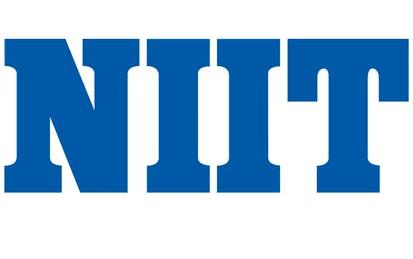

Our Courses

Building Cloud Computing Solutions at Scale
With more companies leveraging software that runs on the Cloud, there is a growing need to find and hire individuals with the skills needed to build solutions on a variety of Cloud platforms. Employers agree: Cloud talent is hard to find.
-
Course by

-
 Self Paced
Self Paced
-
 English
English

IBM Full Stack Software Developer
Prepare for a career in the high-growth field of software development. In this program, you’ll learn in-demand skills and tools for front-end, back-end, and cloud native application development to get job-ready in less than 4 months. Full stack refers to the end-to-end computer system application, including the front end and back end coding. Cloud native development refers to developing a program designed to work on cloud architecture. The flexibility and adaptability that full stack and cloud native developers provide make them highly sought after in this digital world.
-
Course by

-
 Self Paced
Self Paced
-
 English
English

ASP.NET for Experienced Developers
Master the expertise to build modern, secure, and scalable applications using .NET technology. This comprehensive three-course specialization takes you from programming fundamentals to advanced deployment practices: C# for .NET Developers – Build a strong foundation in C# and the .NET framework, covering essential programming concepts like variables, operators, control structures, and object-oriented programming. Learn how to develop web applications using ASP.NET.
-
Course by

-
 Self Paced
Self Paced
-
 English
English
Architecting Hybrid Cloud Infrastructure with Anthos
This specialization is intended for technical engineers, architects, and administrators using Google Cloud Platform (GCP), Kubernetes, and Istio to create, integrate, or modernize solutions. You will learn modernizing, managing, and observing microservices-based applications that span multiple clusters in GCP, on-premises, or other cloud providers.
-
Course by

-
 Self Paced
Self Paced
-
 English
English

IBM DevOps and Software Engineering
DevOps professionals are in high demand!
-
Course by

-
 Self Paced
Self Paced
-
 English
English

Introduction to Istio
Service meshes are becoming a vital component of a company’s infrastructure. This course teaches you how to monitor, connect, and secure microservices using Istio service mesh, the most widely adopted service mesh in production.
-
Course by

-
 Self Paced
Self Paced
-
 9
9
-
 English
English

RESTful Microservices Using Node.js and Express
Backend refers to the server side of development. Here, the primary focus is on how a website works. Node.js is considered efficient for the development of backend applications as it brings event-driven programming and enables development of fast and efficient web servers in JavaScript. Developers can create scalable servers by using a simplified model of event-driven programming that uses call-backs to signal completion of a task.
-
Course by

-
 Self Paced
Self Paced
-
 English
English

IBM Back-End Development
Prepare for a career in the high-growth field of software development.
-
Course by

-
 Self Paced
Self Paced
-
 English
English

IBM Applied DevOps Engineering
Gain the in-demand skills to advance from programming to DevOps engineering. In this program, you’ll learn the latest DevOps practices, tools, and technologies from experts at IBM to get job-ready in less than 3 months. Almost every company is looking to become more Agile and shorten software development cycles, creating a high demand for DevOps Engineers!
-
Course by

-
 Self Paced
Self Paced
-
 English
English

Spring Framework
This Specialization explains high level patterns used in Microservice architectures and the motivation to move towards these architectures and away from monolithic development of applications. Students will learn how Java interacts with databases in a modern framework, using the very popular Spring Boot Framework, with Microservices. Students wishing to develop Java based Web Applications and Restful Micro Services will be using the very popular Spring MVC and Spring Boot frameworks with minimal configuration.
-
Course by

-
 Self Paced
Self Paced
-
 English
English

Cloud Virtualization, Containers and APIs
Welcome to the second course in the Building Cloud Computing Solutions at Scale Specialization! In this course, you will learn to design Cloud-native systems with the fundamental building blocks of Cloud computing. These building blocks include virtual machines and containers. You will also learn how to build effective Microservices using technologies like Flask and Kubernetes. Finally, you will analyze successful patterns in Operations including: Effective alerts, load testing and Kaizen.
-
Course by

-
 Self Paced
Self Paced
-
 14 hours
14 hours
-
 English
English

Build and Implement Microservices Patterns
Do you think an e-commerce application can be created as one large application? Imagine there is an ongoing sale, or some new features are to be added. How, according to you are the changes made visible on the application? Microservices is a cloud-based architectural approach. It contains loosely coupled, and independently deployable smaller services that are put together cohesively to develop and work on larger, and more complex applications.
-
Course by

-
 Self Paced
Self Paced
-
 12 hours
12 hours
-
 English
English

M2M & IoT Interface Design & Protocols for Embedded Systems
This course can also be taken for academic credit as ECEA 5348, part of CU Boulder’s Master of Science in Electrical Engineering degree. M2M and IoT Interface Design and Protocols is the third of three classes in the Embedded Interface Design (EID) specialization, an online version of the on-campus EID class taught in graduate embedded systems design. This course is focused on connecting devices to each other and to the cloud to create prototypes and actual systems that flow data from devices to consumers.
-
Course by

-
 Self Paced
Self Paced
-
 9 hours
9 hours
-
 English
English

Orchestrating the Cloud with Kubernetes
This is a self-paced lab that takes place in the Google Cloud console. In this lab you will learn how to provision a complete Kubernetes cluster using Google Container Engine; deploy and manage Docker containers using kubectl; and break an application into microservices using Kubernetes’ Deployments and Services.
-
Course by

-
 Self Paced
Self Paced
-
 1 hour
1 hour
-
 English
English

Fundamentals of Software Architecture for Big Data
The course is intended for individuals looking to understand the basics of software engineering as they relate to building large software systems that leverage big data. You will be introduced to software engineering concepts necessary to build and scale large, data intensive, distributed systems.
-
Course by

-
 Self Paced
Self Paced
-
 43 hours
43 hours
-
 English
English

Introduction to Cloud Computing
Start your cloud computing journey with this self-paced introductory course! Whether you need general cloud computing knowledge for school or business, or you are considering a career change, this beginner-friendly course is right for you. In this course you’ll learn about essential characteristics of cloud computing and emerging technologies supported by cloud. You’ll explore cloud service models, including Infrastructure as a Service (IaaS), Platform as a Service (PaaS), Software as a Service (SaaS), and Public, Private, and Hybrid deployment models.
-
Course by

-
 Self Paced
Self Paced
-
 25 hours
25 hours
-
 English
English

Building Scalable Java Microservices with Spring Boot and Spring Cloud
"Microservices" describes a software design pattern in which an application is a collection of loosely coupled services. These services are fine-grained, and can be individually maintained and scaled. The microservices architecture is ideal for the public cloud, with its focus on elastic scaling with on-demand resources. In this course, you will learn how to build Java applications using Spring Boot and Spring Cloud on Google Cloud. You'll use Spring Cloud Config to manage your application's configuration. You'll send and receive messages with Pub/Sub and Spring Integration.
-
Course by

-
 Self Paced
Self Paced
-
 12 hours
12 hours
-
 English
English

Introduction to DevOps
Get started with your DevOps journey with this beginner-friendly course! DevOps skills are high in demand and expected to be one of the fastest-growing skills in the software industry. This course is designed to be a first step in obtaining those valuable skills. This self-paced introductory course explores DevOps as a cultural movement. It describes the business case for DevOps, and covers its essentials. This course teaches new ways of thinking, working, organizing, and measuring to fully realize the benefits of DevOps.
-
Course by

-
 Self Paced
Self Paced
-
 9 hours
9 hours
-
 English
English



